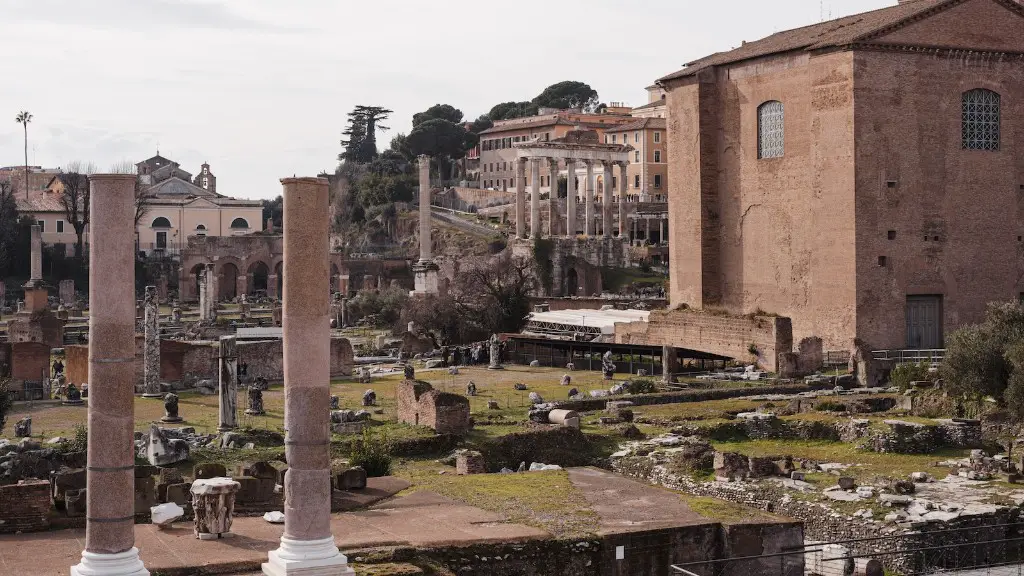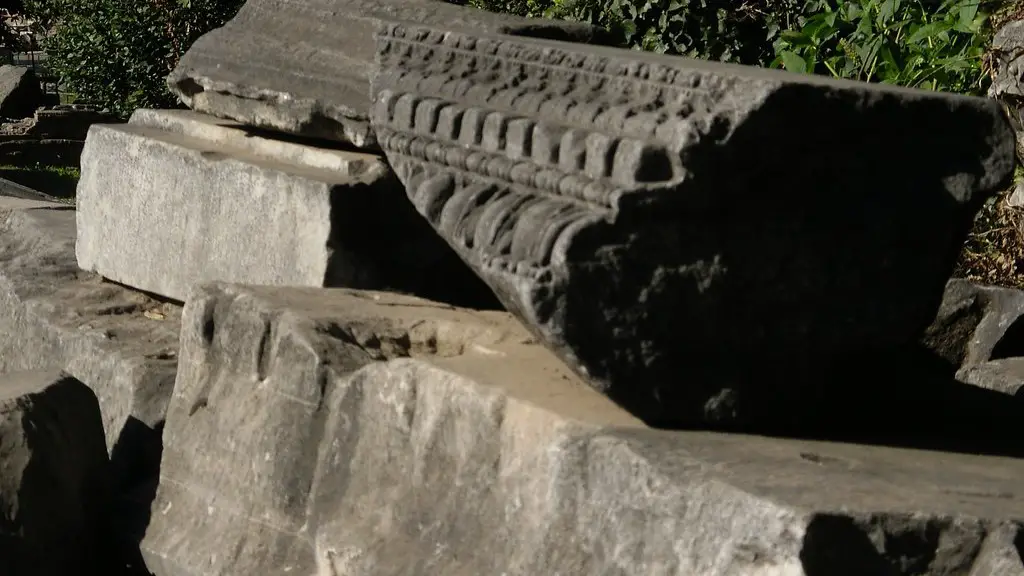Ancient Greece
The ancient Greeks have a long history that predates the ancient Romans. Ancient Greece is one of the earliest civilizations to have ever existed in the world, with evidence of its presence dating back to around 3000 BC. Ancient Greek civilization began with the Mycenaean period and continued with the Archaic Period, Classical Period, and Hellenistic Period. Ancient Greece is important to the history of humans and society because it laid the foundations of so much of what we know today, such as democracy, philosophy, literature, advanced mathematics and science, the Olympic Games, and so much more.
The architecture of ancient Greece is renowned for its elegant lines, well-proportioned structures, and decorative sculptures. Ancient Greek temples are well known for their columns and the art of building with stone, the style of elegant Doric, Ionic and Corinthian columns, and the decorative sculptures on the pediments and friezes. Other well-known construction feats of the ancient Greeks are the Parthenon and the Acropolis in Athens. Ancient Greek philosophy and religion is also important, as the ancient Greeks were among the first people to ask questions about why the world is the way it is and what the meaning and purpose of life is.
The most famous philosophers of ancient Greece are Socrates, Plato, and Aristotle. Their works have shaped the foundations of Western thought and society in ways that have lasted for centuries. Ancient Greece is also notable for its influence on modern-day politics and government, as the ancient Greeks pioneered democracy and civic responsibility. These values have always been respected and even admired in the Western world, and they continue to be influential today.
Ancient Rome
Ancient Rome, unlike Ancient Greece, came much later in history. A republic was founded in Rome in 509 BC and by the 4th century BC it had grown to become the capital of an impressive empire under Emperor Augustus. Ancient Rome was a highly influential civilization, with advancements in literature, art, engineering, and law. It is also important for its contributions to Christianity, which became its official religion in the 4th century AD. Ancient Rome is also known for its sophisticated urban planning and its buildings, such as the Colosseum, the Pantheon, and the Forum.
During the rule of ancient Rome, advances were made in medicine, engineering, and architecture. Ancient Roman architects and engineers developed their own style of architecture that is a mix of Greek, Etruscan, and Roman elements. As the Roman Empire became more powerful, its architecture became increasingly complex, including the construction of grandiose imperial palaces, amphitheaters, and public aqueducts. Ancient Roman art and literature was also very influential, with its famous authors such as Pliny the Elder, Ovid, and Seneca. Ancient Roman literature also includes works by Virgil and Horace, which are still studied today.
Ancient Rome is also known for its advances in law and for introducing concepts such as the rule of law, trials by jury, and the concept of citizenship. The Roman Empire also laid the foundations for modern Western governments by introducing the idea of the separation of executive and legislative powers. Ancient Rome is also important in the history of Christianity, as it was under the rule of Emperor Constantine in the 4th century AD that Christianity became the official religion of the Roman Empire.
Conclusion
In conclusion after examining both ancient Greece and ancient Rome, it can be said that Ancient Greece came first and was the birth of Western culture and society as we know it. Ancient Greece was advanced in democracy and politics, literature and art, architecture, engineering, and mathematics and science. Ancient Rome followed in Greece’s footsteps and was influential in its own ways, introducing concepts such as the rule of law, trials by jury, and the concept of citizenship. Ancient Rome is also significant in the history of Christianity, as it was here that Christianity became the official religion of the Roman Empire.
Greeks and Romans Compared
When we compare and contrast ancient Greece and ancient Rome, we can see many similarities and differences between the two. Both civilizations were incredibly influential in the development of Western civilization and culture. In terms of politics, both developed advanced systems of government, with Ancient Greece being the first to develop democracy, and Ancient Rome introducing the concept of a separation of executive and legislative powers. In terms of the arts and literature, both civilizations had great influence, with Ancient Greek literature and philosophy having a profound impact on Western thought, and Ancient Roman literature and art being similarly influential.
When it comes to architecture and engineering, both civilizations had significant achievements. Ancient Greece is renowned for its elegant columns and ornate sculptures, while Ancient Rome is known for its architectural feats such as the Colosseum and Pantheon. In terms of religion, both civilizations were influential, with ancient Greece making great contributions to Greek mythology and Ancient Rome introducing Christianity as its official religion in the 4th century AD.
Impact of Ancient Greece and Rome
When looking at the impact of Ancient Greece and Ancient Rome on modern-day society and culture, there is no doubt that both civilizations have left an indelible mark. The fundamentals of democracy, philosophy, mathematics, science, and law can all be traced back to Ancient Greece, while concepts such as the rule of law, trials by jury, and the concept of citizenship, as well as the introduction of Christianity as the official religion of the Roman Empire, can all be credited to Ancient Rome. Both civilizations have left a lasting impact on the Western world and have shaped our society and culture in ways that will last for centuries.
Relevance of Ancient Greece and Rome
The relevance of Ancient Greece and Ancient Rome can still be seen today. Ancient Greek philosophy and literature continue to be studied in universities around the world, while Ancient Roman architecture and art remain influential. Furthermore, the fundamentals of democracy and law that were established by Ancient Greece and Ancient Rome are still in existence today, and the values and concepts of civic responsibility are still respected and admired in the Western world. Ancient Greece and Ancient Rome will continue to remain relevant for many years to come.
Legacy of Ancient Greece and Rome
The legacy of Ancient Greece and Ancient Rome is immense and undeniable. Both civilizations have left an indelible mark on Western civilization and culture and made significant contributions to mathematics, science, politics, and religion. The architecture, art, and literature of these civilizations have been admiringly studied and respected for centuries, and are still being studied today. Ancient Greece and Ancient Rome will most definitely continue to have a lasting legacy in the centuries to come.
Continuing Influences of Ancient Greece and Rome
The influence of Ancient Greece and Rome can still be seen in modern-day society and culture. From literature and philosophy to engineering and public aqueducts, major advances were made during the rule of these two civilizations. In addition, the values of democracy and civic responsibility, as well as the rule of law, are all still adhered to in the modern-day Western world. Thus, it can be concluded that the influence of Ancient Greece and Ancient Rome is still present in the world today.



